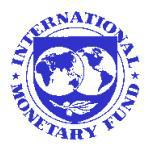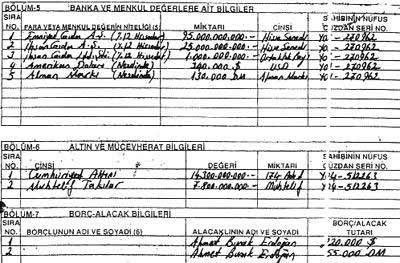* The results demonstrated once again how unjust and unfair the elections system is. Half of the population did not get any representation in the parliament. With 35 percent of the votes, the Justice and Development Party (AKP) got 65 percent of the seats in the parliament. The parties that insisted on the 10 percent election barrier did not get enough votes to send deputies to the parliament.
Unemployment directly affected votes
The people have clearly showed their reaction against poverty and unemployment; Unemployment directly affected votes. The angry people punished the governing parties.
The people who gave up on the True Path Party, (DYP), the Motherland Party (ANAP), the Nationalist Action Party (MHP), and the Democratic Leftist Party (DSP) mostly voted for AKP.
Not because poor people believed that AKP would be the party that would represent them in the best way. And not because they identified their life styles with AKP. They just wanted to "take refuge in" AKP, and thus voted for it.
AKP spent the most money among other parties during its elections campaign. With, its party building, the living standards of its leaders, especially its head Recep Tayyip Erdogan, and with its relations with the capital-holders, AKP clearly demonstrate that it is a part of the economic system.
Anger demonstrated by voting
However, especially the "sufferings" of Tayyip Erdogan played a huge role in channeling people's votes to AKP. The people, in a way, demonstrated their anger to the system by voting for AKP.
Although AKP insists that it is "not a religious party," there still are many people in and outside of Turkey, who believe that AKP is the continuation of a religious party, the Virtue Party (FP).
Such a change would not be easy anyway. Even if we assume that they were genuine in their efforts to change, it would not be impossible for political Islam to become dominant within AKP. Voters with such expectations, and changing conditions could easily open the way for political Islam.
Left wing defeated
The left-wing parties were definitely defeated in these elections. We are faced with the bitter truth that the socialist left has no organic connection left with the poor people.
And social democracy, as it is represented by the Republican People's Party (CHP), proved once again to be nothing more than a selective "regime guard."
Instead of meeting with the victims of this system and criticizing the system even within the boundaries of social democracy, CHP prefered the "I am the best protector and pursuer of the system," attitude. As a result, it could not win more than 20 percent of the votes.
Issues that could lead to a possible conflict within the AKP government.
It is clear today, that AKP faces difficult days. Especially the economic and social problems it will be face with, are enormous. AKP's approach towards the solution of these problems will also determine its attitude towards classes...
Relation with IMF
All we know right now is that AKP says it will pursue the relations with the International Monetary Fund (IMF), and carry on with the economic program, but it will also do necessary revisions. These commitments were welcome by the IMF and large capital-holders. Clearly, they expect the government to continue with the program to pay back its debt, and not to divert from the goal of attaining a surplus, excluding the interest.
Also, the middle-sized capital-holders, in other words, the "Anatolian capital," including the "green capital" (religious capital-holders) (!), expect new resources from the state under the framework of "supporting the manufacturing sector."
Their first request is the lifting of the "financial milestone" for capital-holders to declare their assets, and the practice of inquiring the wealth of capital-holders. And the aim of such a request is to increase the tax income. Compromises in this field could destabilize the public finances and result in a full surrender to unregistered economy.
The laborers are cautiously waiting for the revision of the IMF program. The fact that most of the workers, and especially those who have no social security and who are not members of a union, voted for AKP, shows that they have certain economic and social expectations from this party.
AKP promised the IMF, and national and international capital-holders to be loyal to Turkey's economic program. It will be very difficult for AKP to keep its promise, and at the same time, to meet the expectations of some capital-holders by providing them resources, and the expectations of a vast majority of the population, by ending unemployment and poverty. This is almost impossible. And AKP's priorities will determine its class too.
Focusing on "secularism" and "political Islam" before these issues are clear, would only expand the problems.
Possible developments for unions
There are many problems in the field of employment that are waiting for AKP. The main problem that needs to be solved is clearly unemployment. The main questions are how to increase deployment, what kind of strategy to follow, and which resources to use. We cannot say that AKP has put forward a detailed program about this issue.
It is easy to say that 2.5 million people lost their jobs during the economic crisis. But it is not that easy to say how those people will be re-employed. It would not be convincing to try to solve this problem before talking about the distribution of resources and the way it is split.
It is clear that a "we will establish trust within the market, we will lower the taxes, investments will increase, people will find jobs..." approach will not help solving the problem.
Workers' social rights and their right to unionize are other problems. AKP does not seem to be that positive about the "labor security" law approved by the parliament during its last days. At a speech on behalf of AKP, it was stated " labor security is a sensitive issue; it would be beneficial to consult to the employers; and so it would not be wise to rush the law, but instead, it should be considered within the framework of amendments to the labor law."
Possibly, AKP will pursue this approach and bring on the agenda the amendments to the "labor law" long awaited especially by employers.
Labor law
However, with the many flexible provisions that provide employers with the right to act arbitrarily, this "labor law" represents the most current contradictions between employers and employees. We are curiously waiting to see AKP's attitude on this. The laborers will certainly not appreciate the approval of such a law.
Because of the antidemocratic provisions of the laws that regulate the workers' right unionize; strike and bargain, the number of workers that benefit from the right to organize and hold collective talks, fell below 10 percent.
Removing these provisions and regulating labor laws in accordance with the ILO norms is a fundamental necessity. ILO has been criticizing Turkey for many years and demanding for these amendments. Turkey is being criticized by the European Union (EU) too since it became a candidate country for the bloc.
For future political formation
Shortly, the condition of membership to a union for at least 10 percent of the employees to be granted the right of collective agreement rights; the condition of notary for union membership; the excessively bureaucratic and unjust procedure in determining the authority for collective agreements, deploying subcontractors to break down unions, unjust layoffs etc. are the fundamental problems.
A completely autonomous collective bargaining system with high standards is necessary. It is difficult to guess how AKP will approach to these problems. But it would not be unrealistic to assume that its preference will be pro-capitalist.
AKP's approach to the problems it will face in the near future, will also determine the task and activities of the social opposition. And the coming together of the parliamentary and social opposition over these issues, will directly determine the future political formations. (TC/EK/EA/NM)





